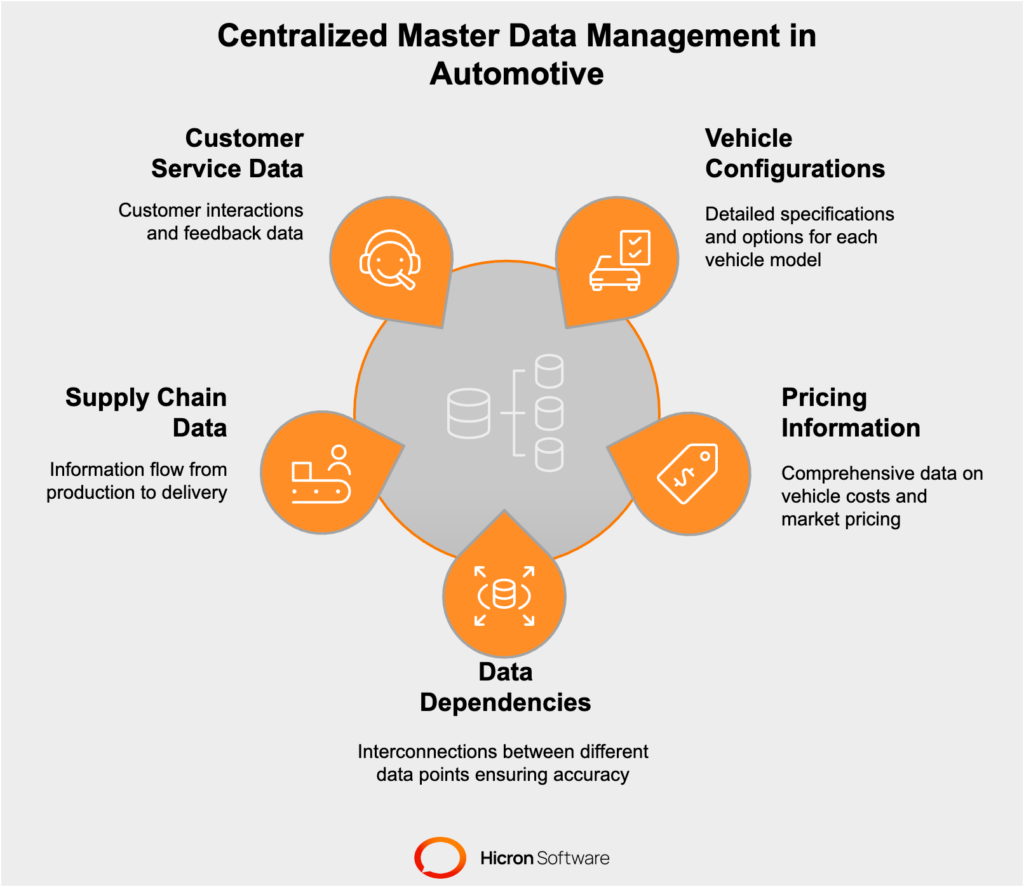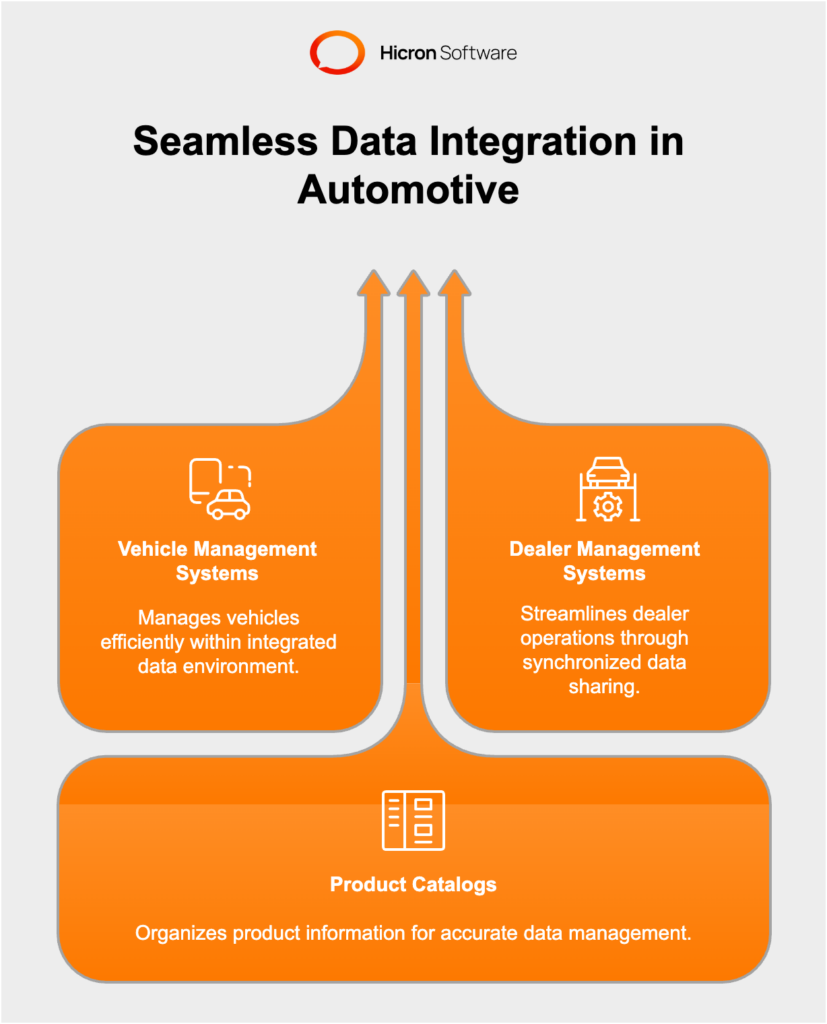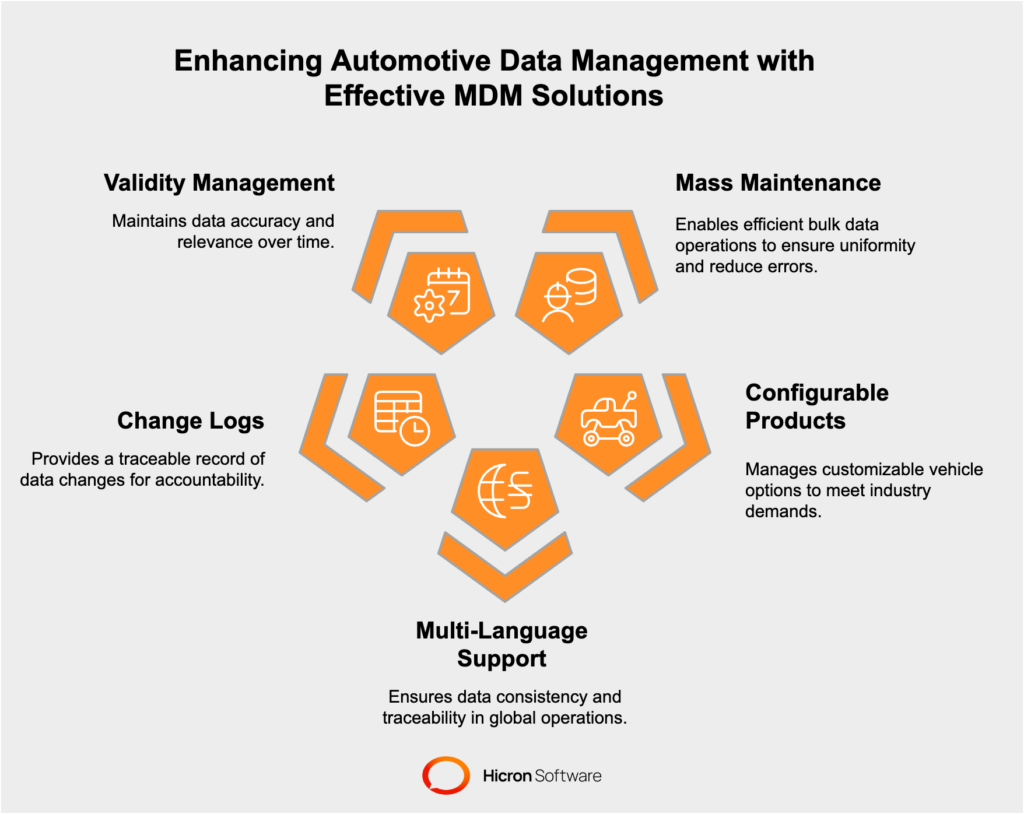Custom Buyback Software: Optimizing Vehicle Buyback Program
- February 12
- 15 min

In the rapidly evolving automotive landscape, automotive data management has become the lifeblood of innovation and operational excellence. Master Data Management for automotive is crucial in organizing and maintaining critical business data—ensuring consistency, accuracy, and accountability across diverse systems.
As automotive companies confront increasing data complexity, implementing robust data management for automotive, MDM solutions, is essential to streamline operations and enhance decision-making. This article delves into the nuanced impact of automotive master data (MDM) within the automotive industry, offering expert insights into its transformative capabilities.
Centralized data management for automotive, MDM, consolidates diverse vehicle-related data, from configurations to pricing and dependencies, into a unified repository. This centralization is vital for eliminating data silos and ensuring all departments—from supply chain to customer service—access uniform and accurate information.
A centralized MDM automotive approach enhances data quality, reduces redundancies, and streamlines operations, enabling automotive companies to respond quickly to market demands and regulatory requirements. The importance of centralized automotive master data (MDM) cannot be overstated, as it acts as the backbone that supports informed decision-making and strategic planning.

Automotive Master Data Management (MDM)’s power lies in its ability to integrate seamlessly with existing systems, such as Vehicle Management Systems (VMS), Dealer Management Systems (DMS), and intricate product catalogs. This integration is pivotal for creating a cohesive data environment that facilitates real-time information flow across platforms. By enabling synchronized data sharing, automotive firms can enhance interdepartmental coordination, improve customer experiences, and minimize errors.
The integration of automotive data management (MDM) with legacy systems not only breaks down data silos but also accelerates the speed and accuracy of critical business processes, such as inventory management and customer relationship management.

Effective automotive data management solutions are characterized by several key features that address the unique challenges of the automotive industry:

The implementation of automotive master data (MDM) solutions delivers substantial business benefits, including:
Numerous automotive companies have reaped the rewards of implementing automotive data management solutions. For example, a leading global manufacturer utilized data management for automotive to improve data accuracy, resulting in a 20% reduction in inventory costs and a 15% increase in operational efficiency.
Another case study highlights how a regional dealership network leveraged MDM to enhance customer satisfaction by providing consistent and accurate vehicle information across its platforms. These real-world applications underscore the tangible benefits of MDM, demonstrating its potential to drive operational excellence and competitive advantage.
Despite its advantages, implementing a master data management solution for automotive, MDM, comes with challenges. Common hurdles include data migration complexities, stakeholder resistance, and integration issues with legacy systems. Overcoming these challenges requires a strategic approach that includes comprehensive change management, continuous stakeholder engagement, and a clear understanding of the existing IT landscape. Companies must also consider aligning automotive master data management strategies with business goals to ensure successful implementation and long-term sustainability.
The future of MDM in the automotive sector is poised for significant innovation. Emerging technologies such as artificial intelligence (AI) and machine learning (ML) are set to revolutionize data management practices. These technologies promise to enhance data processes through automation, improve data accuracy, and provide deeper insights into customer behavior and market trends. As these trends gain traction, automotive companies must stay ahead by integrating these innovations into their MDM strategies to maintain a competitive edge.
Mastering data in automotive through advanced MDM solutions is not just a technological upgrade—it’s a strategic imperative for the automotive industry. By investing in sophisticated MDM systems, automotive companies can unlock new levels of efficiency, accuracy, and customer satisfaction, positioning themselves as leaders in an increasingly data-driven world. As the industry navigates the complexities of digital transformation, the role of MDM will be pivotal in shaping the future of automotive operations and ensuring sustained success. Get in touch with us to streamline your automotive data management.
